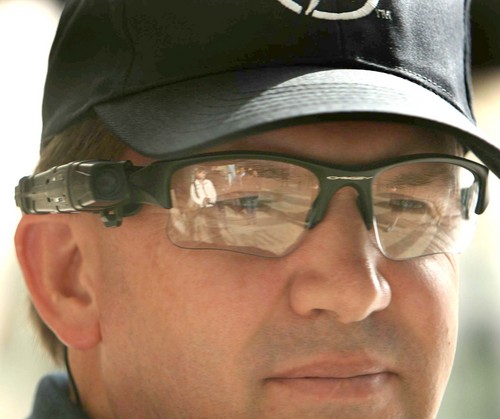This is an archived article that was published on sltrib.com in 2014, and information in the article may be outdated. It is provided only for personal research purposes and may not be reprinted.
More information is almost always better than less. Especially when police officers are investigating crimes. And when others are investigating the conduct of those police officers.
So, of course, the 83 percent of Utahns who, according to a new Utahpolicy.com poll, think police officers should wear body cameras while on duty are correct.
Just as long as they don't think technological wonders will solve all the problems associated with violence in the streets and the public's faith in their law enforcement agencies.
With recent controversies pitting the word and the trustworthiness of police officers against that of citizens who have accused those officers of improper violent acts, the hope that there is something we could start doing to resolve, even prevent, those conflicts is understandably high.
The universal adoption of personal video cameras, which can be worn on a police officer's chest or integrated into eyeglasses or safety goggles, would be a big step in that direction.
There is at least a good chance that such video could clearly exonerate, or condemn, officers who are involved in shootings or other confrontations. Whenever that might happen, communities might avoid the riots that followed the police shooting of an unarmed teenager in Ferguson, Mo.
The Salt Lake City officer who shot and killed a suspect outside a local convenience store recently was wearing a body cam. But that footage has not yet been released, pending the formal investigation of the incident. So it has not, yet, calmed those who feel the shooting was unwarranted.
Body cams for law enforcement are still new enough that no standard of use has evolved. Should footage be released right away, as tapes of 911 emergency calls sometimes are? Should they be preserved as evidence?
And who can be trusted to do the preserving, the reviewing, the guarding against tampering or loss?
And just when should the cameras should be turned off. When the officer stops for lunch? Goes to the bathroom? Questions innocent bystanders who may have witnessed a crime? Rescues a victim from a compromising situation?
The recent case of nude photos of celebrities hacked out of supposedly private storage points out the vulnerability of all digital media.
Other innovations, SWAT tactics to Tasers, have been touted as ways for officers to do their job in more professional, less brutal, ways. It hasn't always worked out.
Body cams should become standard issue for police officers. But no technological wizardry will replace professionalism, training and public trust.



